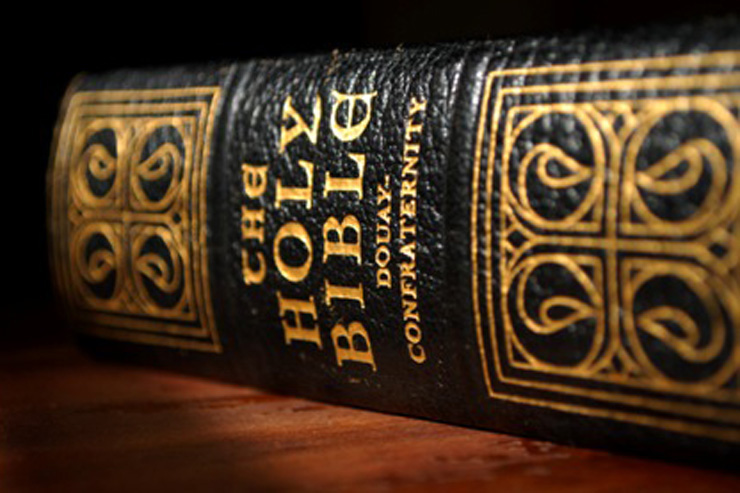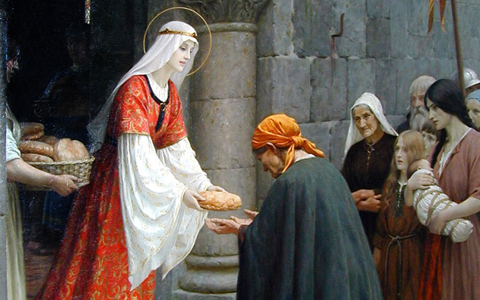
Photography © by Andy Coan
Divine Mercy Sunday or the Octave of Easter presents us with one of the most famous of gospel stories — the story of Doubting Thomas. But it shows us how and when the sacrament of pena
This post focuses on the relation between Divine Mercy Sunday, the unbelief of Doubting Thomas, and the sacrament of penance, reconciliation and confession. The scripture readings for the Octave of Easter, Year B are Acts 4:32-35; Psalms 118:2-4, 13-15, 22-24; First John 5:1-6; John 20:19-31.
Several years ago, the Catholic Church declared the Sunday after Easter “Divine Mercy Sunday.” So what exactly is “mercy” anyway, and what does it have to do with the Easter season?
DIVINE MERCY
Mercy is not just pity. Neither is it simply sparing someone the punishment that they deserve. No, mercy is love’s response to suffering. When mercy encounters suffering, it ultimately seeks to alleviate it. God the Father is so “rich in mercy” (Eph 2:4) that Paul calls him “the Father of all mercies and the God of all comfort” (2 Cor 1:3).
Jesus is the perfect human image of the Father’s mercy. When he meets those suffering from hunger, he feeds them. When he encounters someone suffering from physical sickness, he heals them. True mercy is not superficial, but radical. And Jesus sees that the deepest suffering in human life, the root cause of all other suffering, is sin. Sin debases us, robbing us of our dignity, weakening and even rupturing our connection with God, our loving Father and the source of our life. Sin is not just a transgression of some arbitrary law; it creates a wound in us that can fester and, if not attended to, corrupt us entirely. It gives the Prince of Darkness a hold in our lives that he tries to turn into complete control of our lives. True mercy seeks to alleviate this deeper suffering that can lead to eternal suffering.
SACRAMENT OF MERCY & RECONCILIATION
Jesus died to do precisely this. And the risen Christ instituted the sacrament of penance to apply the medicine of mercy, won on Calvary, to each individual sinner at the moment of their deepest need.
Wait a minute. So Jesus, not the Church, established this sacrament? Where does the Bible say he did that? Right there, in John’s gospel, on Easter Sunday afternoon. Despite the locked doors, he stands amidst the apostles and says “As the Father has sent me, so I send you.” Jesus is the original “apostle” of the Father – the word means “one who is sent.” As he was sent on a mission of mercy, so he sends out his “apostles” on the same mission. He breathes on them and says “Receive the Holy Spirit. If you forgive men’s sins, they are forgiven them; if you hold them bound, they are held bound.” (Jn 20:19-22).
THE SPIRIT OF MERCY
If you have a problem with the Church intruding on what you think ought to be just between just you and God, you’ll have to take that one up with Jesus. It was his idea. From the looks of this text, he gave the apostles and their successors, whom we call bishops, a great deal of authority in this matter. But he also gave them a great deal of power. The same Holy Spirit responsible for the bringing of order out of chaos (Gen 1) and causing a virgin to conceive and bear a son, is breathed upon the apostles. He is the Spirit of Mercy, the Spirit of healing, the Spirit of liberation and resurrection.
Going to confession is not just meeting an official of the institutional church. It is meeting a man who has been anointed with the Spirit of Mercy to stand in the place of Christ (in persona Christi) and serve as an instrument of the divine physician. True, this instrument is a sinner in need of mercy himself. Peter and doubting Thomas make that abundantly clear right from the start. But they are instruments of God’s healing, merciful love, nonetheless. That is the case whether or not they are wise counselors and whether or not they are exceptionally holy.
MEETING CHRIST IN CONFESSION
The Spirit Christ breathed on the apostles on the first Easter afternoon has been passed on to these men through the sacrament of Holy Orders. That means that Christ is the one you meet in confession. And he comes not just to forgive, but to heal, to liberate, strengthen and transform.
His merciful love means that he died not just to “cover our sins,” to wipe them off God’s record book, leaving us the same miserable creatures we’d always been. No, his mercy kills, the infection, heals the wound, and breaks the bonds.
In the sacrament of reconciliation, Jesus invites us penitents, like he did Lazarus, to come out of the place of darkness and decay. And he says to his priestly confessors the same thing he said to the people standing around Lazarus’s tomb: “unbind him, and let him go free!”
That’s divine mercy. I don’t know about you, but I want as much of it as I can get!















